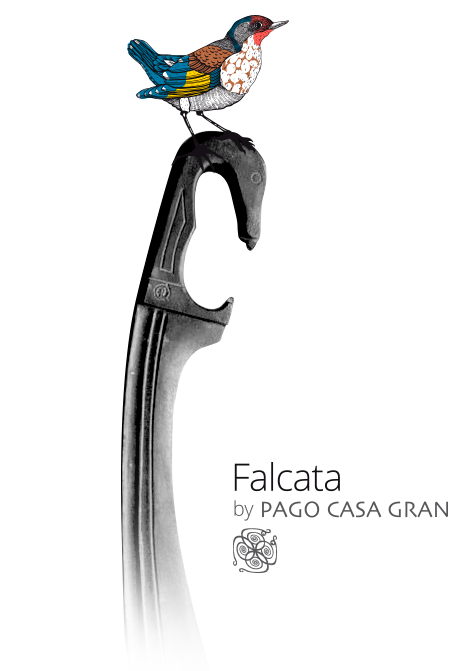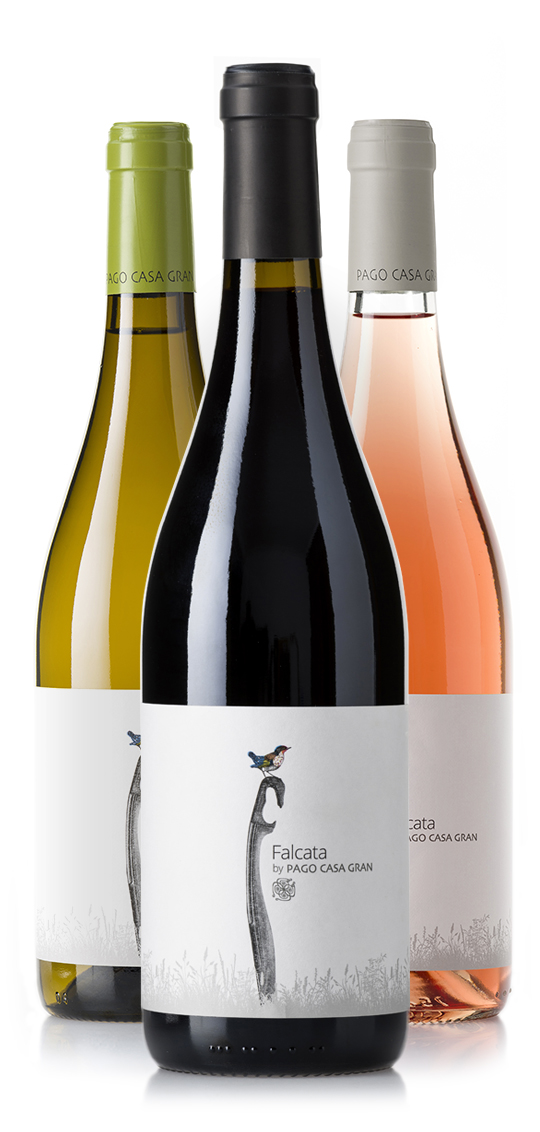Falcata is the name of an Iberian sword that the Iberian people (currently Spain and Portugal) used to fight the Romans through the fourth century B.C.
This sword was a sign of distinction and was made by the crafters to the measurement of the warrior’s arm. The sword was buried with the warrior at the time of his death, so the sword was personal and non-transferrable.
At the southern border of Casa Gran Estate we find a mountain called Bastida. On its top there is an ancient Iberian settlement. We name Falcata to a full family of our wines as a tribute to them and to be closer to our roots.
The label shows a Falcata driven into a grass-covered ground, where a native bird of vivid colors has settled. This same image, inspired on those times, could happen nowadays given that we have had the biodiversity restored.


Description
This wine is made with the grapes from the oldest vineyards with 100% sandy soil, which is the type of soil with less organic matter and worst water retention. The vines are over 60 years old and were not attacked by the phyloxera.
Grape varieties
Garnacha Tintorera
Soil
Sandy soil
Winemaking process
This wine is composed by two wines of the same variety both of them fermented with native yeast.
One is fermented with 25% of grapes with stems in stainless steel, medium maceration. The other is fermented at low temperature 15ºC to gain fruit, short maceration. After malolactic the wine is put separately in barriques of several ages for 12 months.
Then the wine is blended to make Falcata Arenal.

Description
The grapes are harvested from the vineyards that better express the terroir. Subsequently the decision is made over the time of maceration, the type of barrels and the way those are going to be used. The objective is to achieve the best expression of our estate and terroir with a subtle aging in oak to enhance the wine without masking it.
Grape varieties
Garnacha Tintorera, Syrah and Monastrell
Soil
Some varieties from sandy soil, others from white clay soil
Winemaking process
Without crushing, the grapes go to different deposits, depending on their variety, to be fermented with native yeasts. Then, the wines are blended and aged in French oak barrels for ten to twelve months. Finally, it goes into concrete deposits until it is bottled.

Falcata red
Young wine, complex, wide and gentle. It provides a controlled fruitiness perception from the first moment in the palate.
Syrah, Monastrell and Garnacha Tintorera
Falcata rosé
Refreshing wine, young and dry. It’s pleasant with enough body to sustain it. Great acidity.
Monastrell and Syrah
Falcata white
Dry wine, smooth and fruity. Refreshing, yet elegant wine. Considering the varieties in the blend, someone would expect more sweetness.
Gewürztraminer and Muscat